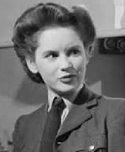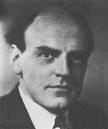

TLW's BBC TVscope™ (BBC TV Historyscope) |
By T.L. Winslow (TLW), the Historyscoper™ |
© Copyright by T.L. Winslow. All Rights Reserved. |
Original Pub. Date: Dec. 15, 2016. Last Update: Dec. 16, 2016. |
Westerners are not only known as history ignoramuses, but double dumbass history ignoramuses when it comes to BBC TV history. Since I'm the one-and-only Historyscoper (tm), let me quickly bring you up to speed before you dive into my Master Historyscope.

On Oct. 18, 1922 the British Broadcasting Co. (BBC) is licensed as a monopoly, and begins domestic radio service on Nov. 14, with Sir John Charles Walsham Reith (1889-1971) as gen. mgr.; initiating broadcasts from London Station 2LO on Nov. 4.
On Jan. 8, 1923 the BBC broadcasts the British Nat. Opera Co.'s production of The Magic Flute from Covent Garden; on June 6 Edgar Wallace reports on the Epsom Derby, becoming the first British radio sports journalist.
On Apr. 23, 1924 George V makes his first broadcast on BBC from Wembly Stadium, opening the British Empire Exhibition.
On Jan. 1, 1927 the BBC and BBC Television (BBC TV) receive a royal charter, changing from co. to corp., with Sir John Reith as dir.-gen. #1 (until 1938); on Jan. 15 the BBC broadcasts its first live sports, an England v. Wales rugby match; on Jan. 22 it broadcasts its first live soccer match, Arsenal v. Sheffield; on July 27 Christopher Stone becomes the first British disc jockey.
On Aug. 20, 1929 BBC-TV makes its first broadcast of John Logie Baird's experimental 30-line TV system.
On Dec. 19, 1932 the BBC begins transmitting overseas with its Empire (World) Service to Australia.
On Dec. 25, 1932 George V gives the first Christmas Speech by a British sovereign from Sandringham Palace, becoming the first British monarch to deliver a Christmas day message by radio, from the BBC's Empire Service on Borough Hill in Daventry.



On Nov. 2, 1936 the world's first regular television (TV) broadcasting service is launched by the BBC at Alexandra Palace in London, with a startlingly high definition of 240 lines as a result of work done by Italian-born Guglielmo Marconi (1874-1937) and Romanian-born Isaac Jacob Schoenberg (1903-90); Buck and Bubbles perform live, becoming the first African-Am. TV artists.
On May 12, 1937 the Coronation of George VI and Queen Elizabeth is broadcast worldwide, becoming the first worldwide radio broadcast heard in the U.S., and a big V for Technicolor; BBC-TV covers the procession following the coronation, becoming the first use of TV outside a broadcast van; on June 21 it broadcasts the Wimbledon Tennis Championships for the first time; on Sept. 16 it makes the world's first live TV broadcast of a soccer match, between Arsenal and Arsenal Reserves.

In Dec. 1937 British actress Muriel Lilian Pavlow (1921-) plays Gretel in a BBC-TV production of "Hansel and Gretel", becoming the first known appearance on TV by a living person.
On Sept. 1, 1939 about 20 min. after airing "Mickey's Gala Premiere", BBC-TV suspends operations for the imment outbreak of WWII.
On Jan. 7, 1940 the BBC Forces Programme debuts on radio (until Feb. 26, 1944).